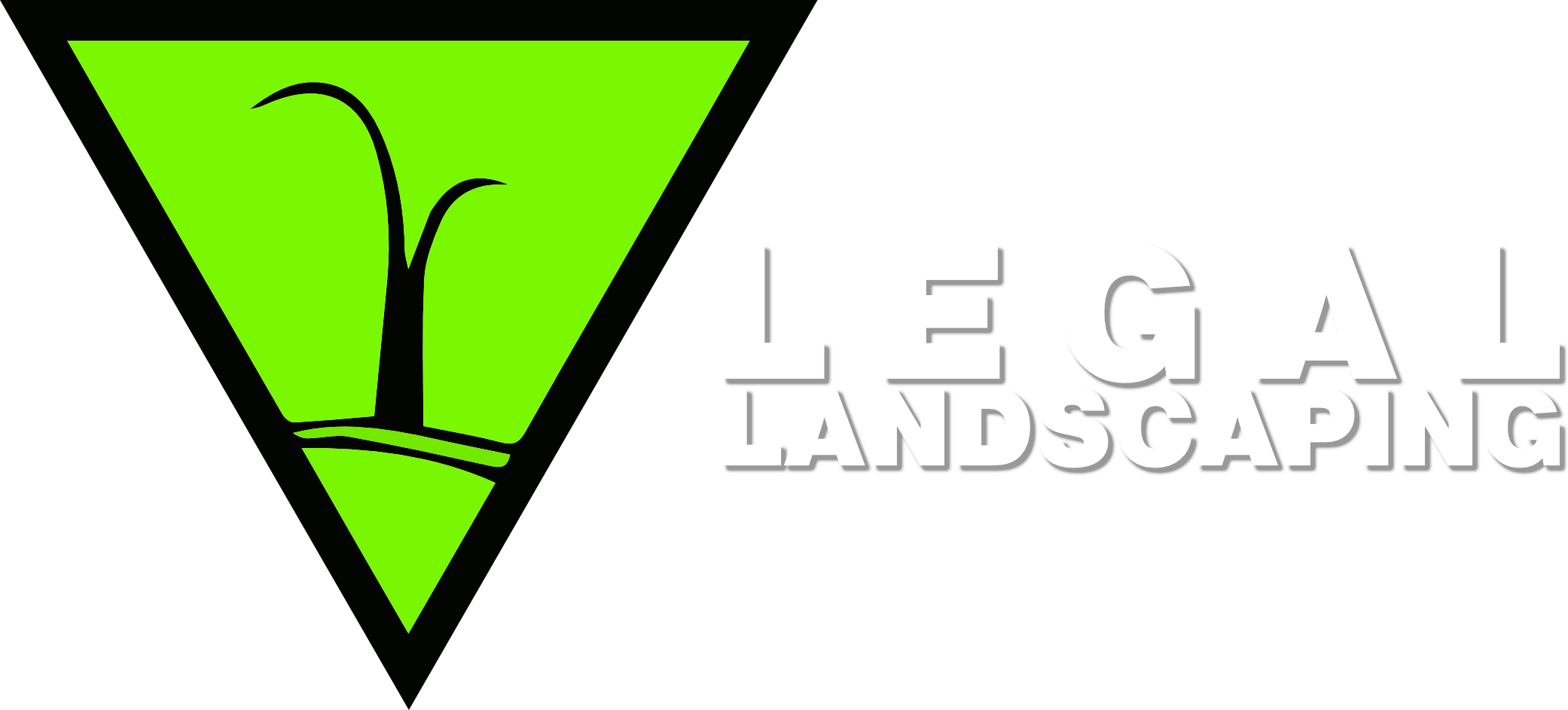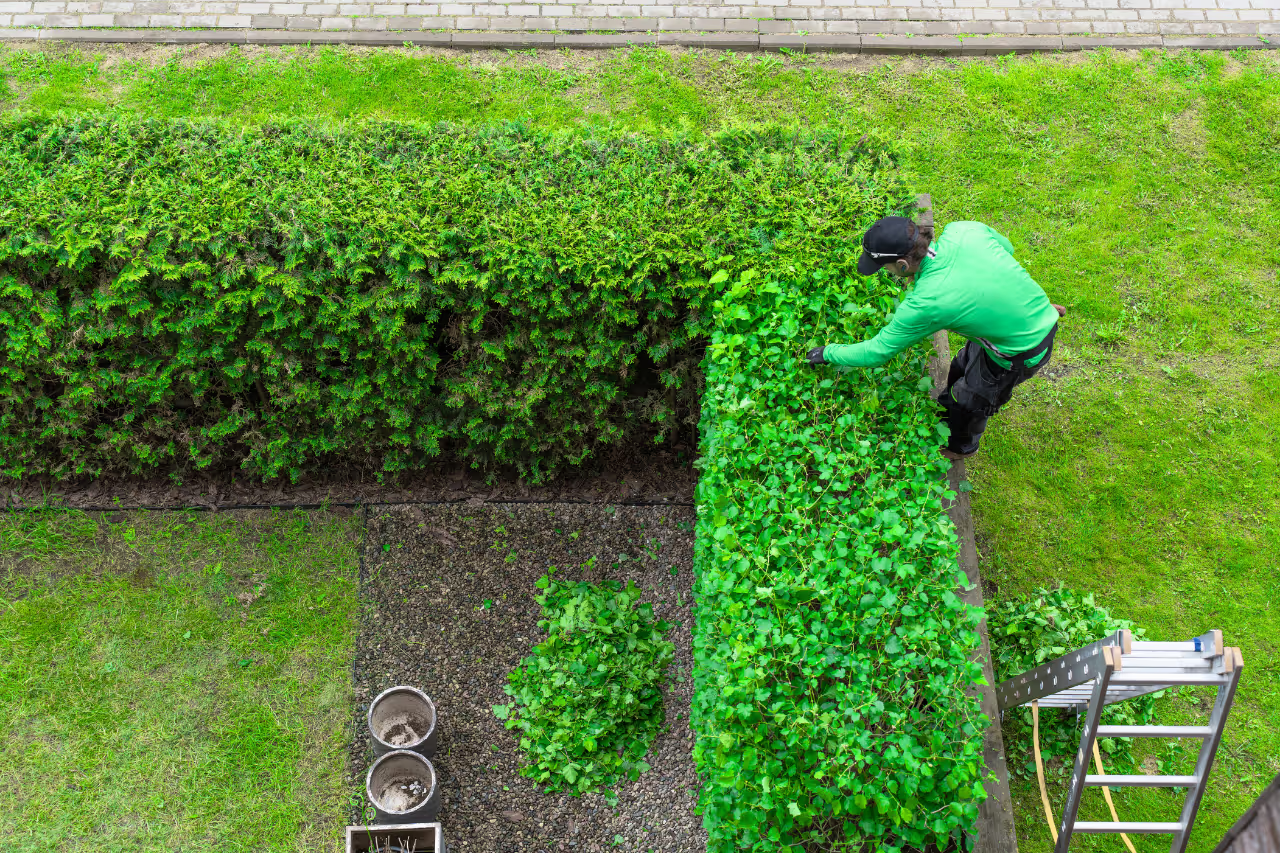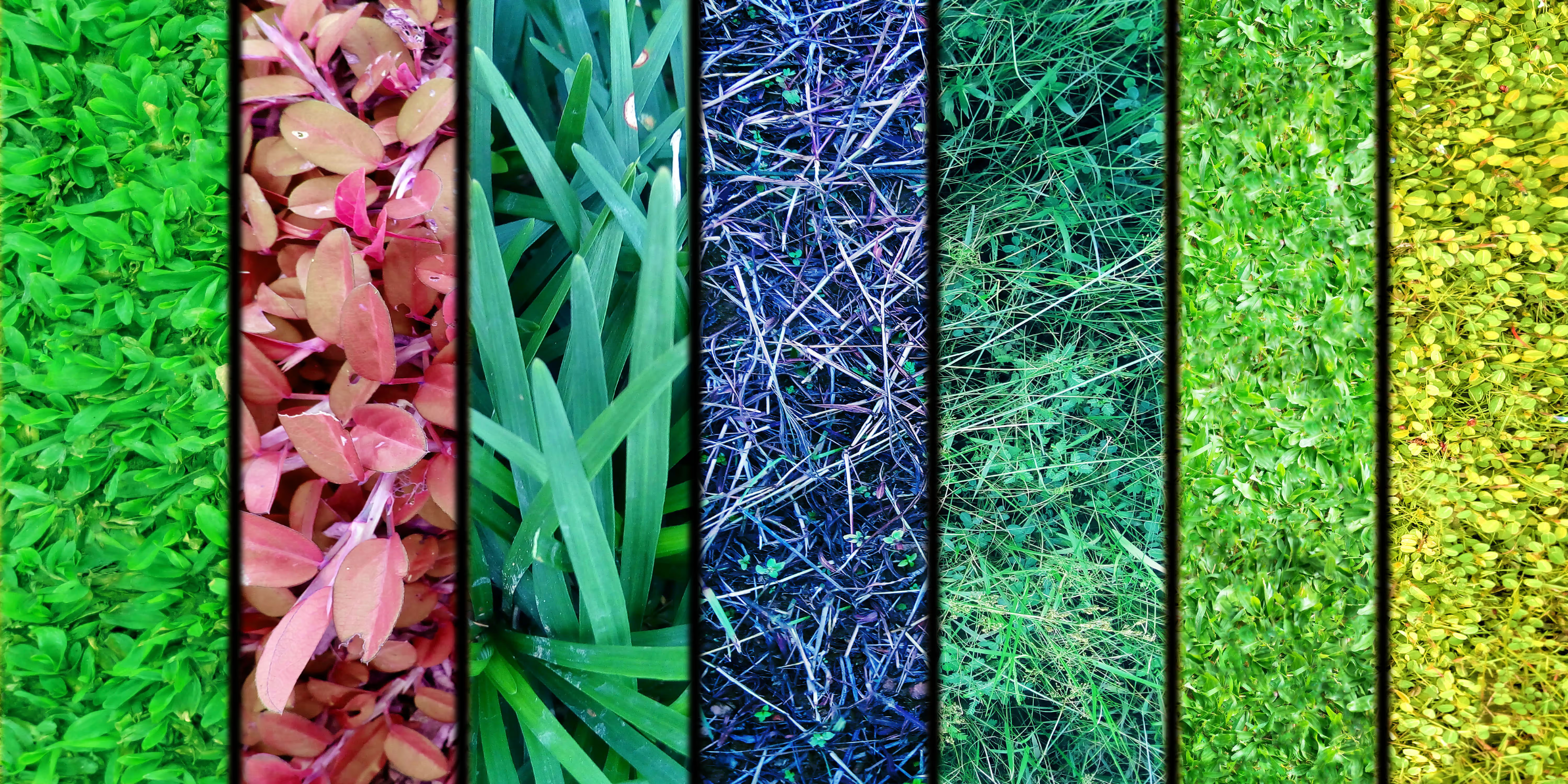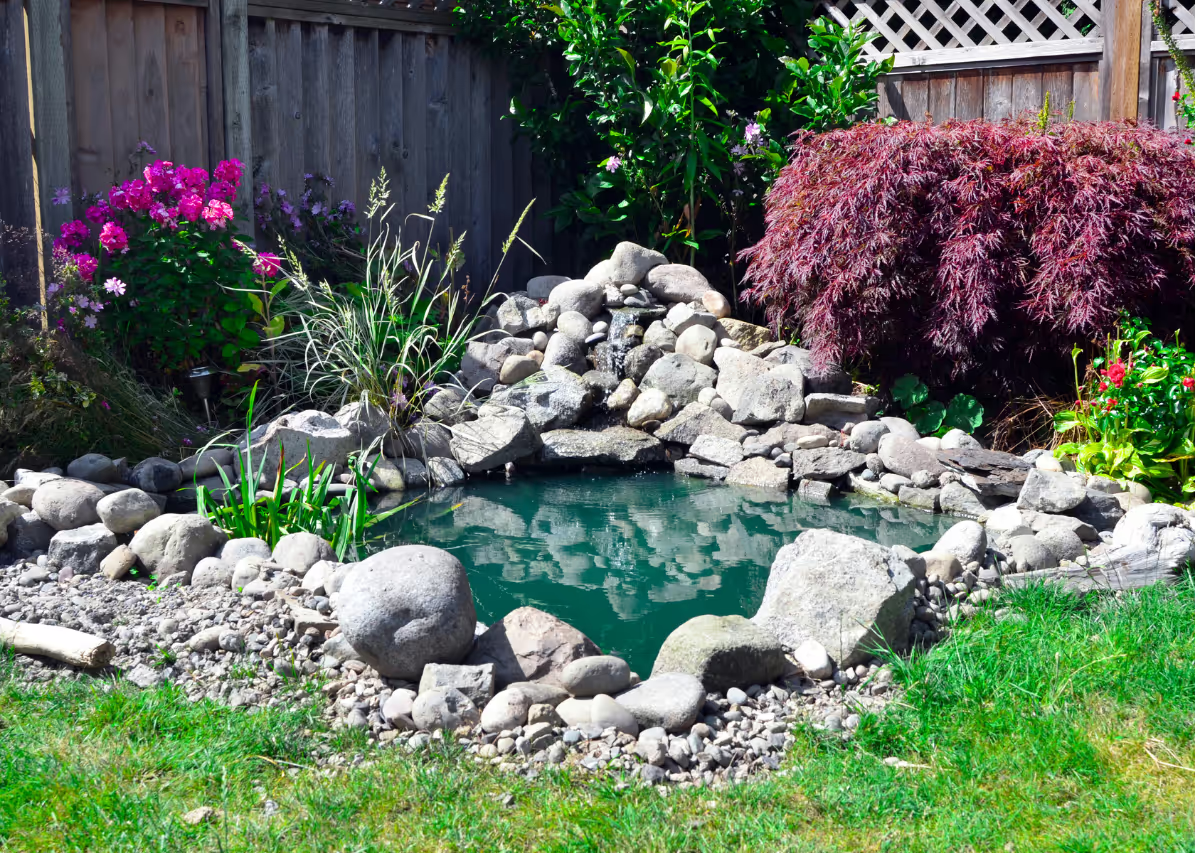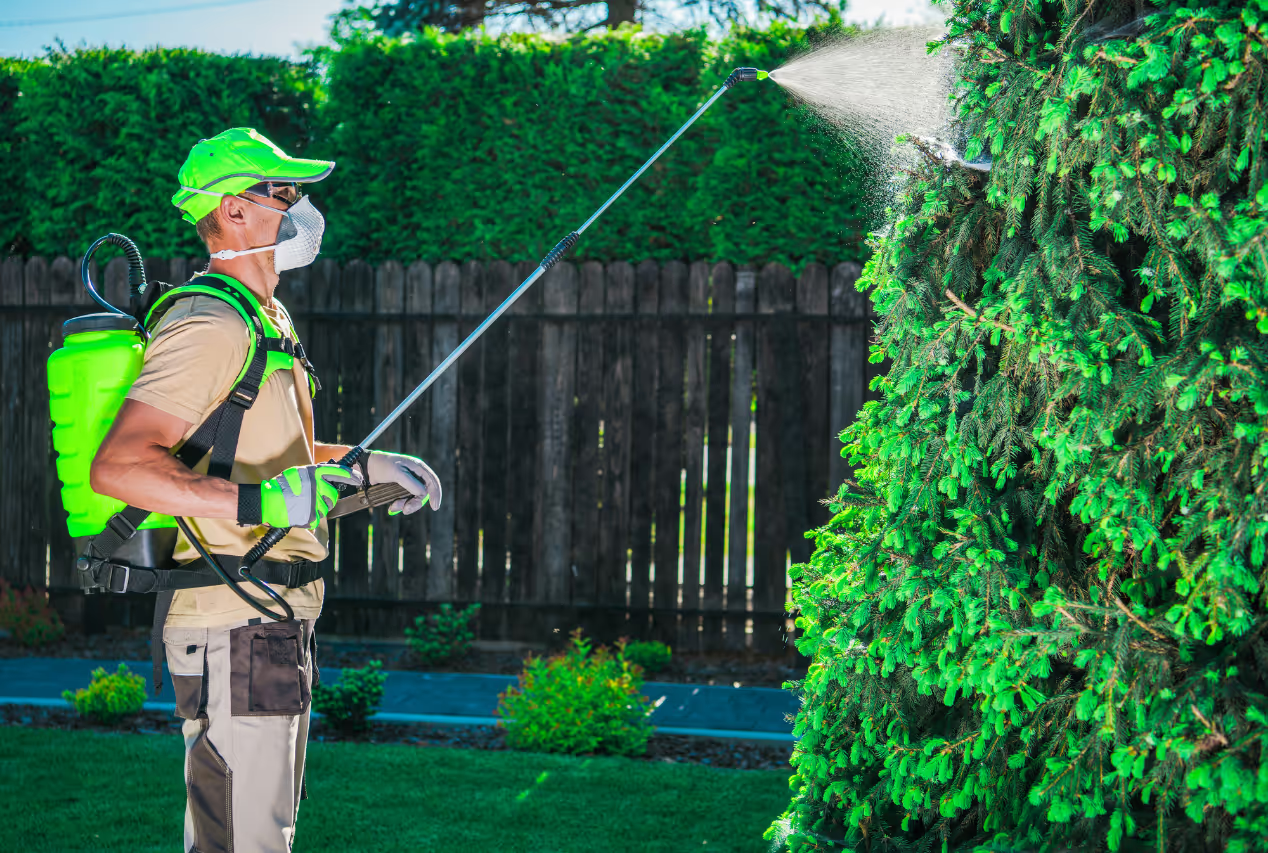Blog
Plan for Lawn Success: Your Roadmap to a Stunning Landscape
Why a Lawn Care Schedule Matters
A well-planned lawn care schedule is more than just a to-do list – it’s your blueprint for a healthy, vibrant outdoor space. By creating a strategic approach to lawn maintenance, you’ll transform random efforts into a systematic, effective care routine.
Seasonal Lawn Care: A Month-by-Month Approach
Spring (March to May)
- Aeration and Overseeding
- Initial fertilization
- Weed prevention
- Clean up winter debris
Summer (June to August)
- Regular mowing
- Deep, infrequent watering
- Pest and disease monitoring
- Spot treatment for bare patches
Fall (September to November)
- Final fertilization
- Leaf removal
- Winterizing irrigation systems
- Soil testing
Winter (December to February)
- Equipment maintenance
- Landscape planning
- Soil amendment preparation
Weekly Maintenance: Consistency is Key
Successful lawn care isn’t about grand gestures – it’s about consistent, thoughtful attention:
- Mow at appropriate height for your grass type
- Monitor irrigation needs
- Remove weeds promptly
- Inspect for signs of pest or disease
The Power of Record Keeping
Create a lawn care journal to track:
- Fertilization dates and types
- Watering schedules
- Pest treatments
- Seasonal observations
- Successful and unsuccessful interventions
Pro Tips for Lawn Care Success
- Invest in quality tools
- Understand your specific grass type
- Adjust schedule based on local climate
- Be flexible and observant
So What's Your Plan?
A strategic lawn care schedule transforms your outdoor space from a simple patch of grass to a living, breathing landscape. With planning, consistency, and attention to detail, you’ll create a lawn that’s the envy of the neighborhood.
Ready to take your lawn care to the next level? Legal Landscaping is here to help you develop the perfect maintenance strategy.
Grass Matters: Choosing the Right Turf for Your New Jersey Landscape
At Legal Landscaping, we understand that the foundation of a beautiful lawn starts with knowing your grass. The type of grass you choose can make all the difference in maintaining a lush, healthy landscape that thrives in New Jersey’s unique climate.
Cool Season Grasses: New Jersey’s Lawn Champions
New Jersey’s climate is perfectly suited for cool season grasses, which flourish in temperatures below 75°F. These resilient grass types are the backbone of most New Jersey lawns, offering exceptional performance during our cooler months.
Key Cool Season Grass Varieties
- Kentucky Bluegrass
- Dense, rich green appearance
- Excellent cold tolerance
- Self-repairing capabilities
- Ideal for full sun to partial shade areas
- Fescues
- Remarkable drought resistance
- Tolerates shade better than other grass types
- Multiple varieties (tall, fine, and meadow fescues)
- Low maintenance requirements
- Ryegrass
- Quick germination and establishment
- Provides excellent ground cover
- Often used in seed mixes for rapid lawn development
- Bright green color and fine texture
Warm Season Grasses: Rare but Noteworthy
While less common in New Jersey, warm season grasses do have a place in certain transitional areas of the state. These grasses thrive in temperatures between 80 and 95°F.
Transitional Grass Options
- Zoysia Grass
- Extremely dense growth pattern
- Excellent heat and drought tolerance
- Requires less water than cool season grasses
- Slower growth, which means less frequent mowing
- Bermuda Grass
- Rapid growth and recovery
- Superior heat resistance
- Works well in high-traffic areas
- Requires full sun exposure
Mixed Grass Landscapes
Many New Jersey properties feature a combination of grass types, strategically planted to maximize lawn health and appearance. This approach allows homeowners to leverage the unique strengths of different grass varieties.
Professional Insights
Selecting the right grass isn’t just about appearance—it’s about creating a sustainable, low-maintenance landscape that thrives in our local climate. At Legal Landscaping, our experts can help you:
- Identify your current grass types
- Develop a customized maintenance strategy
- Recommend overseeding or renovation techniques
- Create a lawn care plan tailored to your specific grass varieties
Maintenance Tips for New Jersey Lawns
- Aerate cool season grasses in early fall or spring
- Fertilize according to each grass type’s specific needs
- Adjust mowing height based on grass variety
- Monitor for seasonal stress and disease
Does Grass REALLY Matter?
Understanding your lawn’s grass type is the first step in creating a beautiful, resilient outdoor space. Whether you have a pure cool season lawn or a mixed grass landscape, proper care and knowledge are key to a thriving New Jersey lawn.
Ready to transform your lawn? Contact Legal Landscaping for a personalized grass care consultation.
Elevate Your Outdoor Oasis: Innovative Landscaping Ideas
At Legal Landscaping, we believe that your outdoor space should be an extension of your home - a place of beauty, relaxation, and functionality. Let's explore some creative landscaping ideas that can turn your yard into a stunning retreat.
Embrace Native Plants: Beauty Meets Sustainability
Incorporating native plants into your landscape design is more than just a trend - it's a smart, eco-friendly choice that pays dividends in beauty and ease of maintenance.
Benefits of native plants:
- Adapted to local climate and soil conditions
- Require less water and maintenance
- Support local wildlife and pollinators
- Create a sense of place unique to your region
According to the National Wildlife Federation, native plants provide the most sustainable habitat for local wildlife, including essential pollinators. At Legal Landscaping, we can help you select the perfect native species that will thrive in your specific microclimate.
Pathways and Patios: Defining Your Outdoor Living Spaces
Well-designed pathways and patios can dramatically enhance the functionality and aesthetics of your landscape. They serve as:
- Natural guides through your garden
- Outdoor living and entertaining areas
- Visual breaks in expansive lawns
Material options:
- Natural stone for a timeless look
- Brick for classic charm
- Gravel for a rustic, permeable surface
Our expert team can help you choose materials and designs that complement your home's architecture and your personal style.
Vertical Gardens: Maximizing Green in Minimal Space
For those with limited ground space or a desire for unique visual interest, vertical gardens offer an innovative solution.
Advantages of vertical gardens:
- Maximize green space in small areas
- Create stunning visual focal points
- Improve air quality
- Provide natural insulation for buildings
From living walls to tiered planters, we can design a vertical garden that fits your space and style perfectly.
The Legal Landscaping Approach
At Legal Landscaping, we believe in creating outdoor spaces that are not only beautiful but also sustainable and functional. Our team of experts will work with you to:
- Assess your space and needs
- Develop a custom design plan
- Implement innovative solutions
- Provide ongoing maintenance support
Ready to reimagine your outdoor space? Contact us for a consultation and let's bring your landscaping vision to life.
Green Revolution: Eco-Friendly Lawn Care for a Sustainable Future
In an era where environmental consciousness is paramount, your lawn care routine can play a significant role in promoting sustainability. At Legal Landscaping, we’re committed to practices that not only create stunning outdoor spaces but also contribute to a healthier planet. Let’s explore how you can revolutionize your lawn care approach with these eco-friendly strategies.
Organic Fertilizers: Nourishment from Nature
Chemical fertilizers may offer quick results, but they can harm beneficial soil organisms and contribute to water pollution. Organic alternatives provide a sustainable solution:
- Compost: Rich in nutrients and beneficial microorganisms
- Bone meal: Excellent source of phosphorus for root development
- Fish emulsion: Provides nitrogen for lush, green growth
- Seaweed extract: Packed with micronutrients for overall plant health
These natural options improve soil structure, enhance water retention, and promote long-term lawn health without compromising the environment.
Drought-Resistant Plants: Beauty Meets Efficiency
Incorporating drought-resistant plants into your landscape design is a smart move for both aesthetics and water conservation. According to the Environmental Protection Agency, drought-tolerant landscaping can reduce outdoor water use by 20-50 percent.
Consider these water-wise options:
- Lavender: Fragrant and beautiful, thrives in sunny, dry conditions
- Sedum: Succulent ground cover with vibrant colors
- Black-Eyed Susan: Cheerful flowers that attract pollinators
- Ornamental grasses: Add texture and movement with minimal water needs
These plants not only reduce water consumption but also require less maintenance, giving you more time to enjoy your outdoor space.
Mulching: Nature’s Recycling System
Mulching is a simple yet powerful eco-friendly practice that offers multiple benefits:
- Nutrient recycling: Grass clippings return valuable nutrients to the soil
- Moisture retention: Reduces evaporation, keeping soil hydrated longer
- Weed suppression: Natural barrier against weed growth
- Soil temperature regulation: Protects roots from extreme temperatures
To mulch effectively:
- Leave grass clippings on the lawn after mowing
- Ensure even distribution to avoid clumping
- Consider a mulching mower for optimal results
Beyond the Basics: Additional Eco-Friendly Practices
- Rain barrels: Collect rainwater for irrigation
- Native plants: Choose species adapted to your local climate
- Integrated Pest Management (IPM): Use natural predators and targeted treatments to manage pests
The Legal Landscaping Approach
At Legal Landscaping, we’re passionate about creating beautiful, sustainable landscapes. Our team of experts can help you implement these eco-friendly practices and more, ensuring your outdoor space is not only stunning but also environmentally responsible.
Ready to transform your lawn care routine? Contact us for a personalized eco-friendly landscaping plan.
Legal Landscaping's Ultimate Tool Guide
Why the Right Tools Matter
In the world of lawn care, your tools are your greatest allies. The difference between a good lawn and a great lawn often comes down to having the right equipment at your fingertips. Let’s dive into the essential tools every homeowner needs to transform their outdoor space.
The Lawn Mower: Your Landscaping Cornerstone
Choosing the Right Mower
- Push Mowers: Ideal for smaller lawns
- Self-Propelled Mowers: Perfect for medium-sized yards
- Riding Mowers: Essential for large properties
Key Considerations
- Lawn size
- Terrain type
- Storage space
- Budget
- Physical capabilities
The Rake: More Than Just Leaf Collection
Types of Rakes
- Leaf Rake: Lightweight, flexible for leaf collection
- Bow Rake: Heavy-duty, great for soil work
- Thatch Rake: Specialized for removing dead grass
Beyond Leaf Removal
- Soil preparation
- Seed spreading
- Lawn dethatching
- Debris management
The Aerator: Your Lawn’s Secret Weapon
Why Aeration Matters
- Improves soil oxygen circulation
- Enhances nutrient absorption
- Promotes root growth
- Reduces soil compaction
Aeration Options
- Manual Aerators: Budget-friendly, great for small areas
- Plug Aerators: Most effective for comprehensive soil treatment
- Spike Aerators: Quick solution for minor compaction
Pro Tips for Tool Selection
- Invest in quality over quantity
- Maintain your tools regularly
- Store tools properly
- Consider your specific lawn’s needs
You're Only As Good As Your Tools
The right tools are your passport to a stunning lawn. At Legal Landscaping, we believe in empowering homeowners with knowledge and the right equipment. Remember, a well-maintained lawn is a reflection of care, precision, and passion.
Need expert advice on selecting the perfect lawn care tools? Our team is always ready to help you create the lawn of your dreams.
Lawn Care Mistakes: What Every Homeowner Needs to Know
Maintaining a beautiful lawn isn’t as simple as it might seem. Even experienced gardeners can fall into common traps that compromise their lawn’s health and appearance. Let’s dive into the most critical mistakes to avoid and how to create a truly stunning outdoor space.
1. The Overwatering Trap
Many homeowners believe that more water equals a healthier lawn. In reality, overwatering can be just as damaging as underwatering.
The Risks of Overwatering:
- Shallow root development
- Increased susceptibility to diseases
- Wasted water and higher utility bills
- Promotes fungal growth
Pro Tip: Water deeply but less frequently. Aim for about 1-1.5 inches of water per week, adjusting for rainfall and local conditions.
2. Neglecting Soil Health
Your lawn’s foundation is its soil. Ignoring soil health is like building a house on unstable ground.
Why Soil Matters:
- Provides essential nutrients
- Supports root growth
- Determines water retention
- Impacts overall lawn resilience
We recommend regular soil testing to understand your lawn’s specific needs. Penn State Extension offers comprehensive soil management guidance to help you maintain optimal soil conditions.
Soil Health Strategies:
- Conduct annual soil tests
- Add organic matter
- Balance pH levels
- Use appropriate fertilizers
3. Mowing Too Short: A Common Mistake
Many homeowners believe a super-short lawn looks neat and tidy. However, cutting grass too short can cause significant stress to your turf.
Consequences of Scalping Your Lawn:
- Weakened grass roots
- Increased weed vulnerability
- Reduced drought tolerance
- Increased risk of disease
Ideal Mowing Height:
- Cool-season grasses: 2.5 to 3.5 inches
- Adjust height based on grass type and season
Expert Recommendations
- Understand your specific grass type
- Invest in soil health
- Water strategically
- Mow at the correct height
- Monitor and adapt your lawn care routine
Don't Make these Common Mistakes!
A beautiful lawn isn’t about perfection—it’s about understanding and working with nature. By avoiding these common pitfalls, you’ll create a resilient, vibrant landscape that enhances your property’s beauty and value.
At Legal Landscaping, we’re passionate about helping homeowners achieve their lawn care goals. Need personalized advice? We’re just a call away.
Embrace the Future: How Technology is Revolutionizing Lawn Care
In an era of smart homes and digital innovation, lawn care is undergoing a remarkable transformation. Gone are the days of manual labor and guesswork – technology is here to make maintaining your perfect lawn easier, more efficient, and surprisingly enjoyable.
Smart Irrigation: The Water-Saving Wonder
Imagine a lawn care system that thinks for itself. Smart irrigation technology does exactly that. These intelligent systems go beyond traditional sprinklers by:
- Monitoring real-time weather conditions
- Adjusting water usage based on temperature and humidity
- Preventing over-watering and water waste
- Saving you money on water bills
- Maintaining optimal lawn health
Lawn Care Apps: Your Pocket Landscape Expert
Your smartphone is now your most powerful lawn care tool. Cutting-edge apps provide:
- Personalized maintenance schedules
- Pest and disease identification
- Fertilization tracking
- Seasonal care recommendations
- Expert advice at your fingertips
Robotic Mowers: The Autonomous Lawn Guardians
Say goodbye to weekend mowing marathons. Robotic mowers are changing the game by:
- Operating completely autonomously
- Maintaining consistent grass height
- Working quietly and efficiently
- Reducing physical strain
- Providing precise, even cuts
The Legal Landscaping Tech Advantage
At Legal Landscaping, we embrace these technological innovations to:
- Deliver more precise services
- Reduce environmental impact
- Provide transparent, data-driven lawn care
- Save our clients time and resources
When Tech Meets Turf
Technology isn’t just changing lawn care – it’s revolutionizing how we interact with our outdoor spaces. Embrace the future, and watch your lawn transform!
Landscaping: Your Property’s Secret Weapon for Value and Impression
The Financial Impact of Professional Landscaping
Did you know that professional landscaping can increase your property value by up to 10%? According to Turf Magazine, this seemingly simple investment can translate to a significant financial advantage when selling your home, land, or business property.
Curb Appeal: Your First Impression Matters
Whether you’re a homeowner or a business owner, the exterior of your property speaks volumes before anyone steps inside. Curb appeal is more than just a buzzword – it’s a critical factor in creating lasting impressions and maximizing property potential.
Beyond Beauty: The Science of Landscaping
At Legal Landscaping, we understand that exceptional landscaping is a delicate balance of:
- Aesthetic design
- Safety considerations
- Functional efficacy
- Long-term property value
Our approach goes beyond simple beautification. We craft outdoor spaces that are as intelligent as they are beautiful, ensuring every hardscaping and landscaping project serves a purpose beyond mere visual appeal.
Why Professional Matters
Professional landscaping isn’t just about planting trees or laying stones. It’s about:
- Strategic design
- Understanding local environmental conditions
- Maximizing property potential
- Creating spaces that tell a story
Landscaped Design, Yay or Nay?
Your outdoor space is an investment – in your property’s value, in your daily experience, and in your community’s aesthetic. Choose a landscaping partner who understands the nuanced art and science of transforming outdoor spaces.
Ready to unlock your property’s hidden potential? Contact Legal Landscaping today.
Free Consultation: Your Gateway to the Perfect Yard
What is lawn aeration and why is it important?
Understanding Lawn Aeration
Lawn aeration involves perforating the soil with holes to allow air, water, and nutrients to penetrate the grass roots. Here’s why it’s important:
- Reduces Soil Compaction: Aeration alleviates soil compaction, promoting healthier root growth.
- Improves Nutrient Absorption: It enhances the absorption of nutrients and water.
- Encourages Thicker Grass: Aeration leads to a thicker, healthier lawn.
Consider aerating your lawn at least once a year for optimal health.
What should I do for lawn care in each season?
Seasonal Lawn Care Guide
Each season requires different lawn care practices:
- Spring: Rake leaves, aerate the soil, and apply fertilizer.
- Summer: Mow regularly, water deeply, and control pests.
- Fall: Overseed, fertilize, and prepare for winter.
- Winter: Keep the lawn clear of debris and avoid heavy foot traffic.
Following these seasonal tips will help maintain a healthy lawn year-round.
How do I maintain my landscaping?
Landscaping Maintenance Tips
Proper maintenance is key to a beautiful landscape. Here are some tips:
- Regular Pruning: Trim shrubs and trees to promote healthy growth.
- Watering: Ensure plants receive adequate water, especially during dry spells.
- Weed Control: Regularly check for and remove weeds to keep your landscape tidy.
- Mulching: Apply mulch to retain moisture and suppress weeds.
Consistent maintenance will keep your landscaping looking its best.
What are effective methods for controlling weeds?
Controlling weeds is essential for a healthy lawn. Here are some effective methods:
- Mulching: Apply mulch around plants to suppress weed growth.
- Hand Pulling: Regularly hand-pull weeds before they seed.
- Herbicides: Use pre-emergent herbicides in early spring to prevent weed seeds from germinating.
- Healthy Lawn Practices: Maintain a thick, healthy lawn to outcompete weeds.
Combining these methods will yield the best results in weed control.
What are the best grass types for my region?
The best grass type for your lawn depends on your region's climate. Here are some popular options:
- Bermudagrass: Ideal for warm climates, it thrives in sunny areas and is drought-resistant.
- Fescue: A cool-season grass that performs well in transitional zones and offers shade tolerance.
- Bluegrass: Known for its lush appearance, it is best suited for cooler climates.
- Zoysiagrass: A hardy option that tolerates heat and drought, making it suitable for various regions.
Consult with a local expert to determine the best grass type for your specific area.
